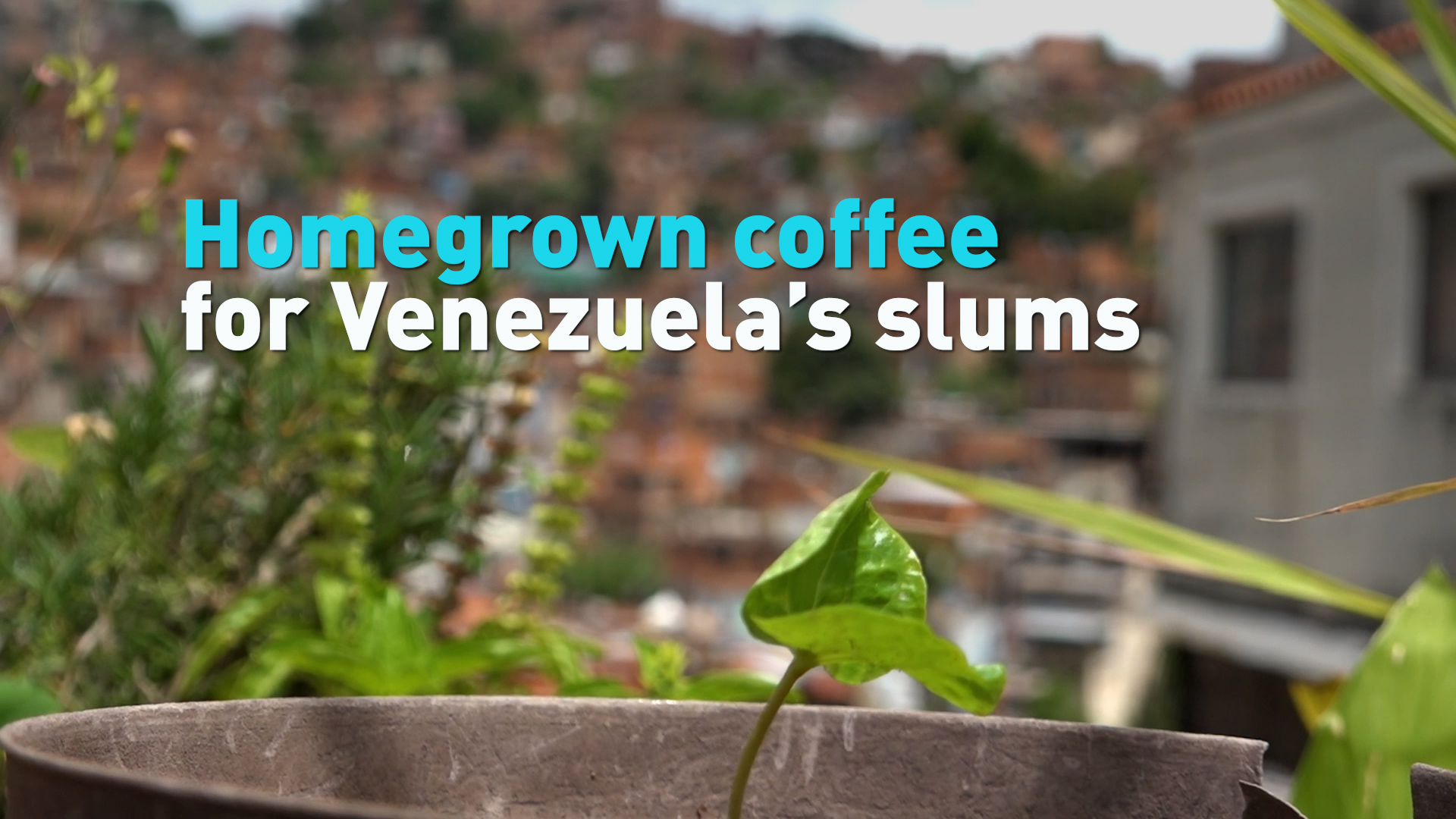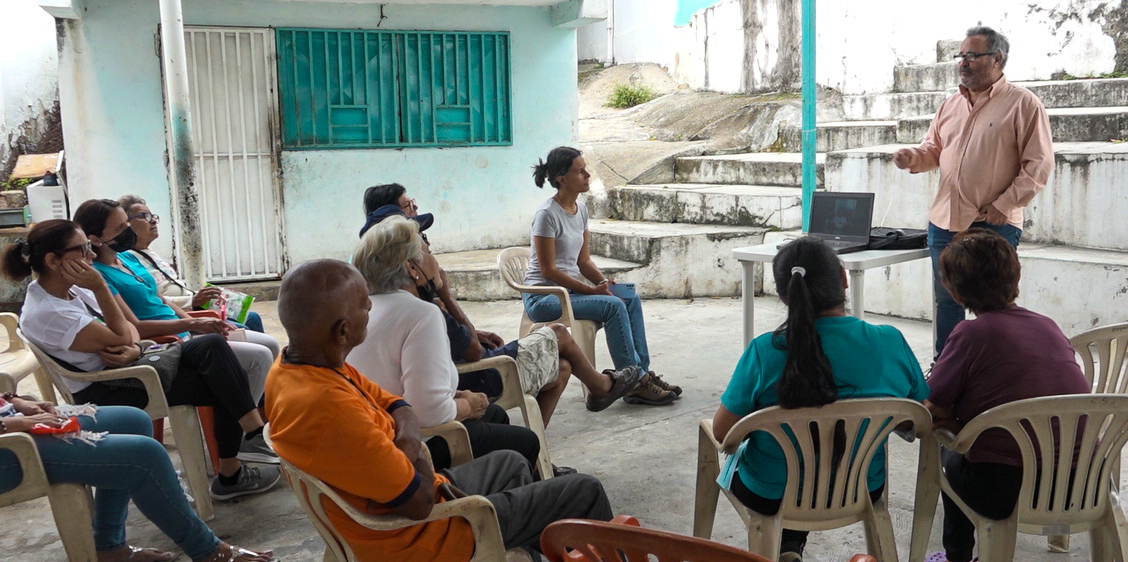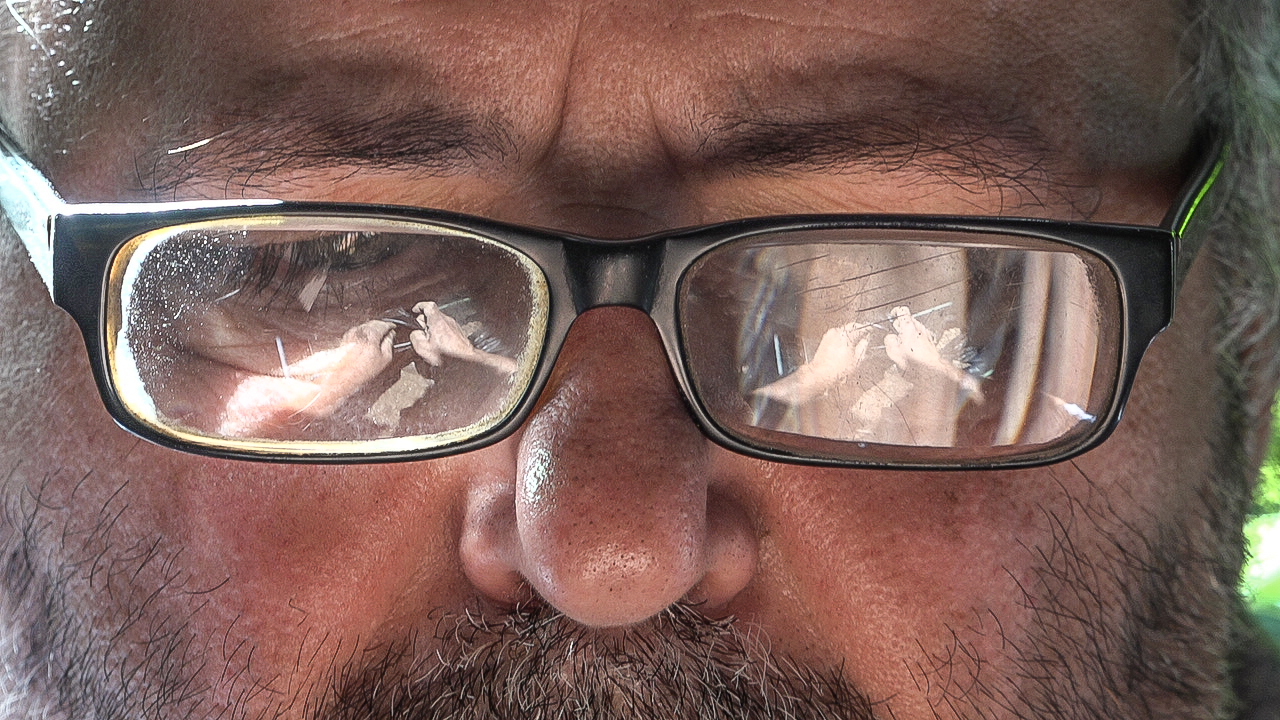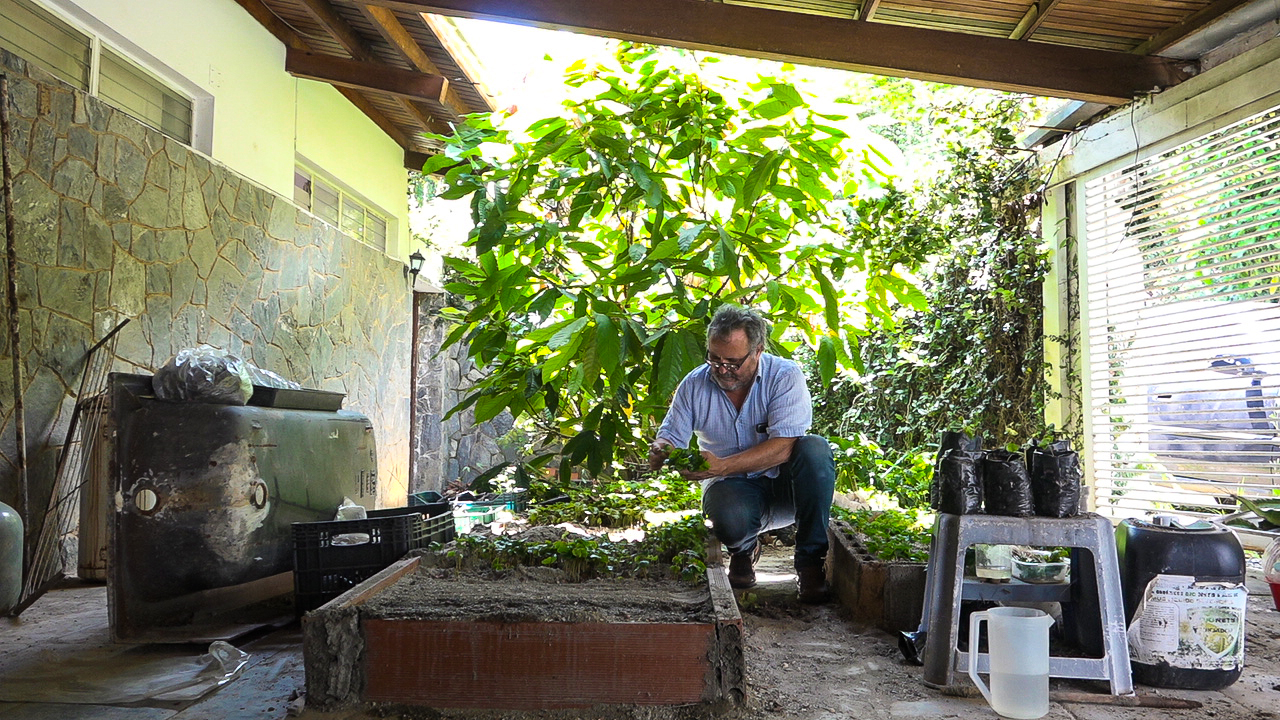03:01

A sustainable project is aiming to once again grow Venezuelan coffee in the country’s capital, and in doing so change the face of one of its largest slums. The community is joining forces to grow a special variety of Venezuelan coffee beans, bringing to the Petare slum quality coffee and a better life for its residents.
The initiative is called CafePetareBlu Project. Organizers give away seeds to plant coffee in the Caracasslum with the aim of promoting the planting of coffee in local, homegrown settings.
Former hairdresser Virginia Cuello uses her rooftop in the Petare neighborhood west of Caracas to grow coffee beans.She started the process by planting a number of small trees.

People in Petare are trained on how to cultivate coffee plants.
People in Petare are trained on how to cultivate coffee plants.
“In each pot, I’m going to place just one seed for the next three months, then when they have larger roots I have to replant them in a large flower pot,” says Cuello. “And wait for the beans to grow, wait for the fruits."
Virginia is just one of thousands of Petare residents who are being trained in the art of harvesting coffee in urban areas.
The idea of the project is to recover the Valley of Caracas as a large-scale coffee-producing center through the participation of neighborsand organized communities. The project aims to promote the small-scale economy and supply coffee to local families.
An NGO, along with community leaders and Venezuelan coffee experts are in charge of teaching the basics and promoting the self-sufficient project.
Veteran coffee expert Enrique Egaña is part of the Café Blu Project who believes the capital of Venezuela has the right weather conditions.
“Caracas has the perfect weather and altitude to grow quality coffee” says Egaña. “The idea is to transform Caracas into the city of coffee specialties of theworld."
Petare was founded in 1621 by Spanish settlers who used the mountains to grow crops including coffee, cocoa and sugar cane. Venezuelan coffee beans became popular for their gray and blue tones. But the expansion of cities forced those plantations to disappear.

Petareños are growing a special coffee variety called Petare Blu.
Petareños are growing a special coffee variety called Petare Blu.
The average Venezuelan consumes 2.4 kilos of coffee beans every year. But local coffee production is not enough to cover the demand, as a result a large portion of the coffee needed in the country is imported.

Residents learn to grow the seeds, roast coffee beans, and enjoy a cup
of coffee.
Residents learn to grow the seeds, roast coffee beans, and enjoy a cup
of coffee.
Egaña, who has been studying the genetics of coffee, was able to grow and certify his own variety at home. Now, he is sharing that knowledge with underprivileged communities, from teaching them how to grow the seeds, roast the beans, and to prepare an exquisite cup.
“Coffee does not distinguish between race, politics, religion, sex, because what it is is tasty,” Egaña said.
Petare’s resident Lucrecia Bruzual received her coffee trees three months ago.
With great care and love, she watches them grow and waters them.
In Venezuela, a cup of coffee is one of the main excuses to gather together withfamily and friends.
“I believe it is an essential product at home, everybody drinks coffee," Bruzual said. "So, we have to look for a way to produce it."
Organizers estimate in three years Café Petare Blu will have spread across the area. They plan to bring beans to other poor communities, proving that cultivating quality coffee at home is something anyone can do.
For more, check out our exclusive content on CGTN Now and subscribe to our weekly newsletter, The China Report.

